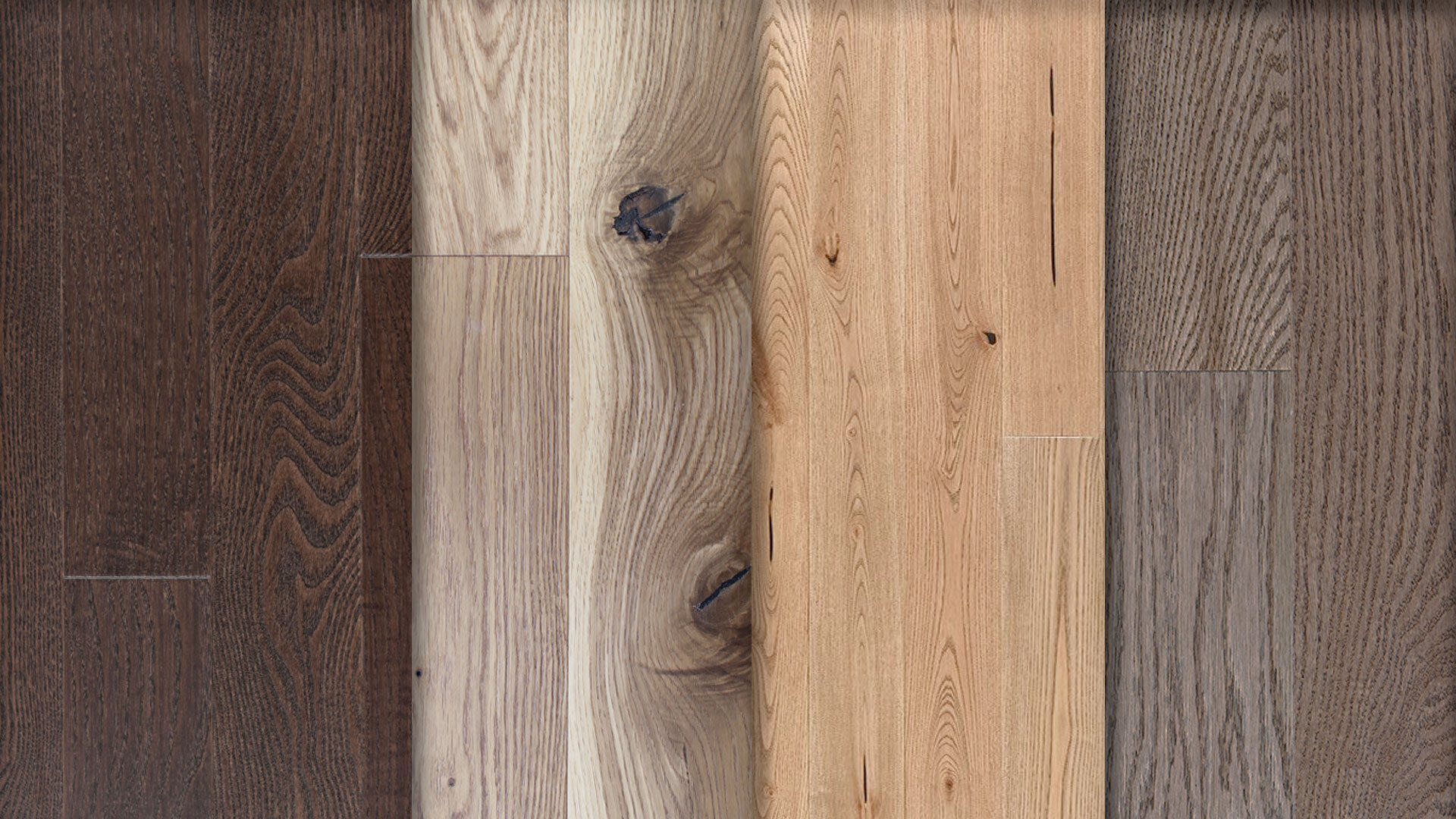
Engineered Hardwood vs Solid Hardwood
Flooring 101
Engineered Hardwood
The secret is in engineered wood’s multi-ply construction that consists of a thick top layer of solid hardwood, an inner core of high density material and a hardwood backing. This tiered construction gives engineered hardwood superior strength and stability, making it less likely to react to changes in temperatures and humidity. For homeowners, the benefit is a floor that can be installed in dampness-prone areas like finished basements.
Engineered wood flooring looks very much like solid hardwood but its construction features a relatively thin layer of hardwood bonded over a premium-quality plywood layer that gives the flooring very good stability. A good-quality engineered wood floor typically lasts 25 to 30 years and is both less expensive and easier for DIYers to install.
Appearance
Whatever it is, the way you tell your story online can make all the difference. Floorboards tend to be wider with engineered hardwood flooring. Some pre-finished engineered hardwood flooring has slightly beveled edges, which creates slight grooves between boards, while solid hardwood flooring generally has very tight seams between boards. Engineered hardwood flooring is almost always sold pre-finished, and there is a narrower range of available colors and species than with solid hardwood.
Solid Hardwood
Solid wood flooring comes in long planks, usually made of a hardwood species. It is milled with tongues and grooves on opposite edges so that the boards interlock when installed. It is always nailed down to the subfloor, a process that requires some skill. Because it is solid wood, this flooring can be sanded down and refinished several times over its life.
Appearance
Solid hardwood flooring boards tend to be narrower than engineered hardwood flooring. Solid hardwood generally has very tight seams between boards, and there is a great range of colors and species than is found with engineered hardwood flooring. Solid hardwood is available in both pre-finished and unfinished boards.
Pros and Cons
Water and Heat Resistance
Both types of hardwood have good resistance to heat. Neither material is recommended installation for truly wet locations.
Solid Hardwood
Solid hardwood is not recommended for installation against concrete slabs, since humidity migrating through the concrete can cause solid hardwood to swell and warp.
Engineered Hardwood
Engineered hardwood has slightly better performance in humid locations since its plywood construction makes it more stable and less susceptible to warping. If installation against a concrete sub-floor is necessary, engineered hardwood is the choice.
Best for Water and Heat Resistance: Engineered Hardwood
Engineered hardwood flooring comes out the winner here, since its plywood base is less susceptible to warping caused by moisture.
Care and Cleaning
Solid Hardwood
This flooring is easy to clean with simple sweeping and vacuuming, and occasional damp-mopping with an approved wood cleaner.
Engineered Hardwood
Care and cleaning of this flooring look the same as for solid hardwood: sweeping or vacuuming, and occasional damp-mopping with a wood cleaner.
Best for Care and Cleaning: Even Tie
Both types of flooring are relatively easy to care for, requiring simple sweeping and cleaning with an approved wood cleaner. Avoid using water or steam to clean any wood floor.
Durability and Maintenance
Solid Hardwood
Solid hardwood is slightly superior here, since it can be sanded down and refinished several times over its lifespan.
Engineered Hardwood
Engineered hardwood can be refinished once, or at most twice, before the surface hardwood layer is exhausted.
Best for Durability and Maintenance: Solid Hardwood
Solid hardwood flooring holds the edge here since it can be sanded and refinished several times over the course of its lifespan. Pre-finished forms of both floors are the most durable since they have a hard, factory-applied finish that holds up very well. All wood floors can benefit from a renewal of the surface varnish coat every few years.
Cost
Solid Hardwood
Pre-finished solid hardwood averages about $8 per square foot, within a range of $4 to $12 per square foot.
Engineered Hardwood
Engineered hardwood flooring is slightly less expensive than solid hardwood. The typical range engineered hardwood flooring is $2.50 to $10 per square foot, with most types falling in the $4 to $7 per square foot range.
Best for Cost: Engineered Hardwood
The edge here goes to engineered hardwood flooring, but the difference is not huge. For both types of flooring, installation labor can add $3 to $10 per square foot, depending on prevailing labor costs in your area and the complexity of the room layout.
Installation
Solid Hardwood
Solid hardwood flooring is installed with a tongue-and-groove system, in which each board is blind-nailed to the subfloor down through tongues at the edges of the boards.
Engineered Hardwood
Some engineered wood flooring is also installed with the same nail-down methods used for solid hardwood, but there are also forms with "click-lock" edges that can be installed as a "floating floor." Engineered wood flooring can also be glued down against a concrete subfloor. Most DIYers find engineered wood flooring to be easier to install.
Best for Installation: Engineered Hardwood
DIYers find that the click-lock or glue-down forms of engineered hardwood are easier to work with than the nail-down methods used for solid hardwood.





